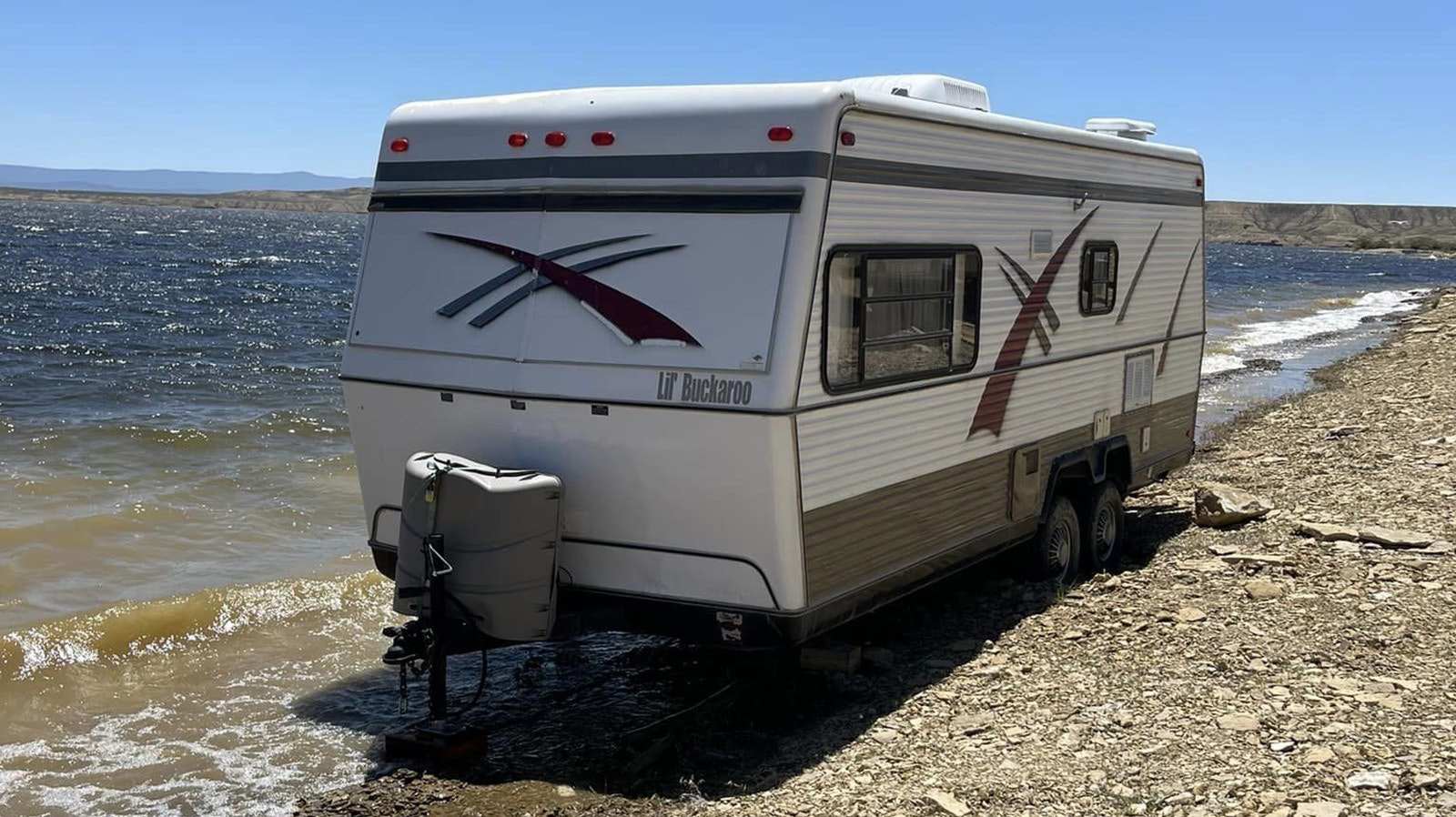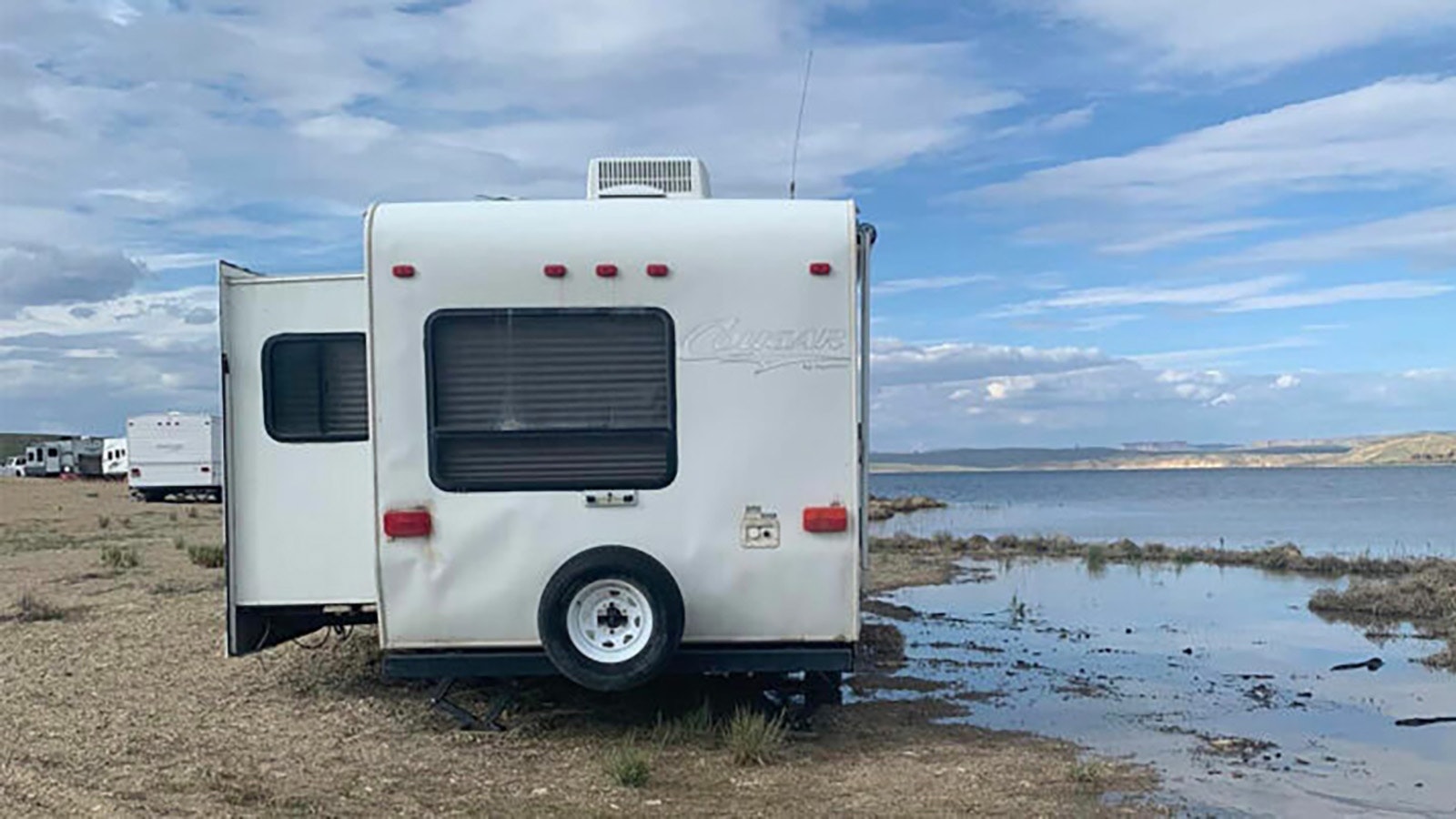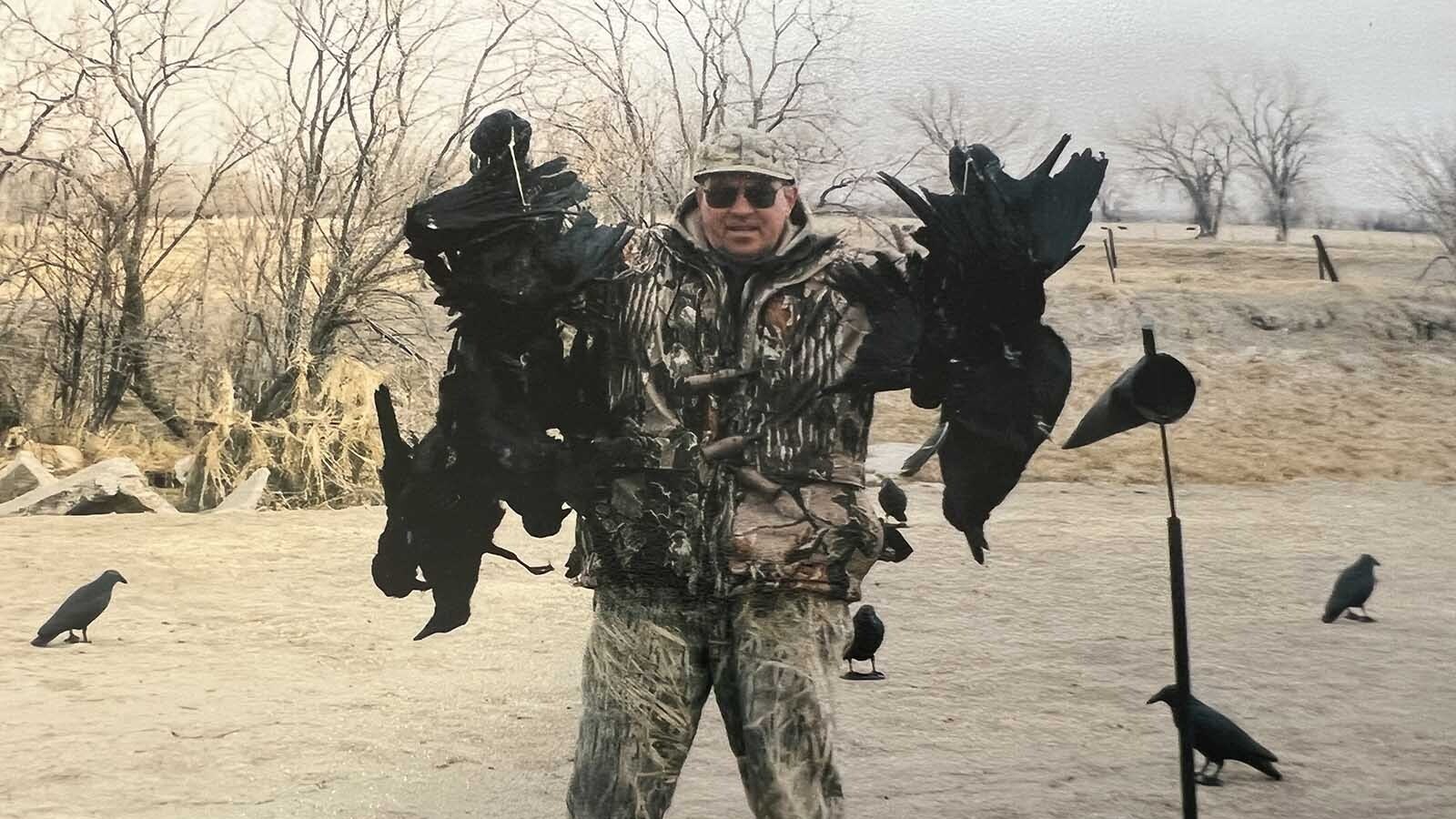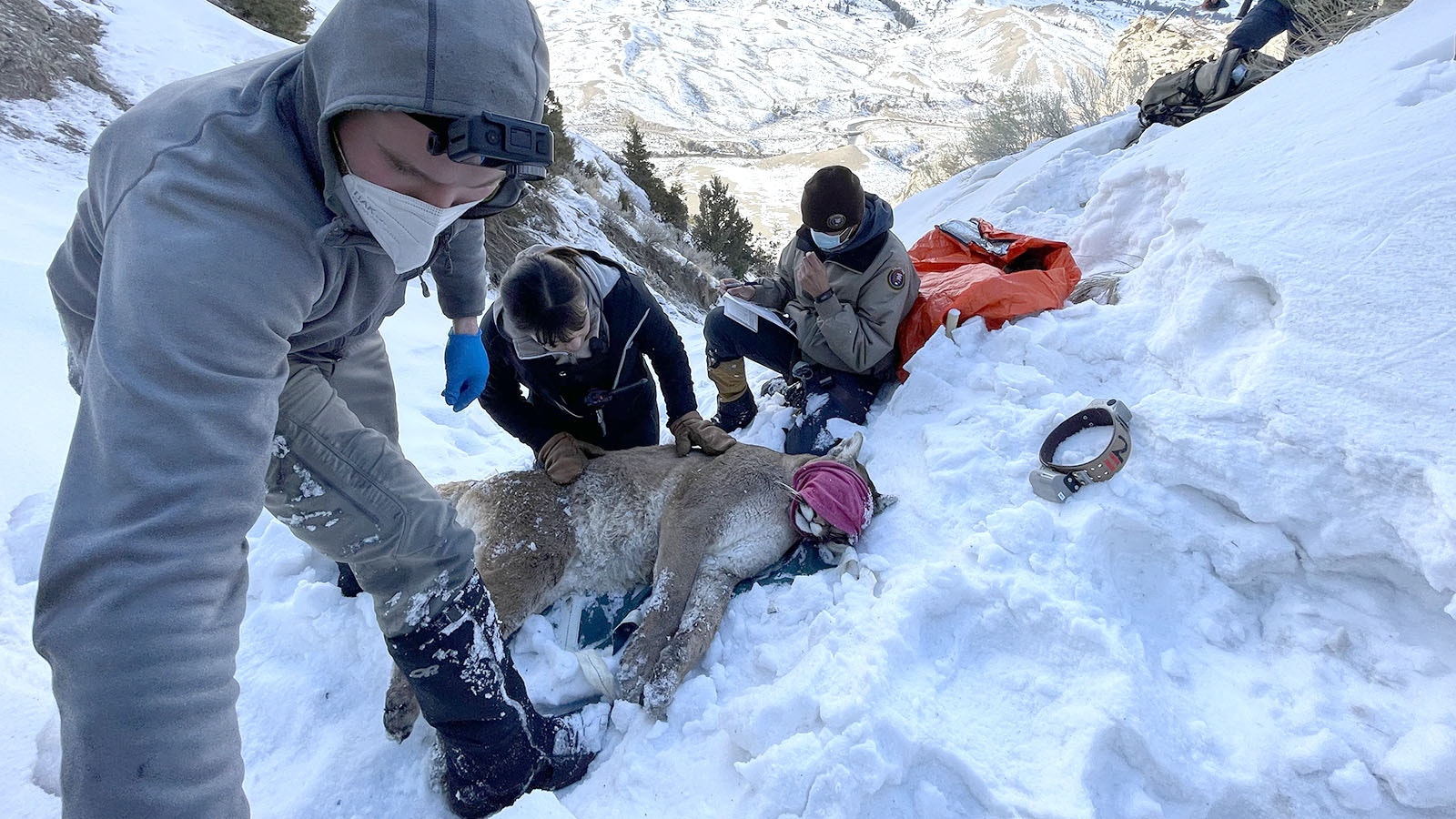Like smores roasted over a campfire, a beachfront camp spot at Flaming Gorge Reservoir is sweet, but some campers are getting more than they bargained for as water levels rise.
Heavy spring runoff is threatening to swamp a few house trailers that were left on the beach along the reservoir's north end.
Leaving campers on the beach for extended periods of time can be frustrating for the Sweetwater County Sheriff’s Office, which receives complaints about people staking out camping areas on public land, said SO spokesperson Jason Mower. But the office doesn’t have any jurisdiction there.”
"It's a common practice around the Gorge, right, wrong or indifferent, for people to leave trailers for a week at a time or longer," Mower said. "We get calls from people who say campers are left there all summer, tying up access to public land, much to the chagrin of others."
The reservoir is 85% full, but last fall it was drawn down about 30 feet to provide water for downstream reservoirs. The drawdown created larger beaches, but not necessarily better camp spots.
"A high amount of mountain snowmelt runoff, increased outflows upstream from Fontenelle Reservoir and decreased outflows at the Gorge itself have raised water levels nearly 3 feet during the first 14 days of June," according to a press release from the Sweetwater County Sheriff's Office.
Some May Get Unwelcome Surprise
The 91-mile-long reservoir that crosses the Utah border is rising at a rate of several inches a day.
“Obviously, if the water gets too high and you’re parked too close to the shoreline, at the very least, you’re risking water damage to your camper or other property,” said Sheriff’s office spokesperson Jason Mower. “We just want people to be aware and be smart about the rising water levels.”
Mower explained that the abandoned house trailers are a can of worms for the sheriff's office because the beach is not part of its jurisdiction.
Flaming Gorge National Recreation Area is under the jurisdiction of the U.S. Forest Service, and Mower said although his department commonly cooperates with federal agencies, there's not a lot either can do about the campers left as long-term parking for fishermen and campers.

The 14-Day Rule
Dispersed camping regulations on most BLM Wyoming-administered public land, including around Flaming Gorge, allows for a 14-day occupancy within a 28-day period. The 14-day limit is reached either through several separate visits or 14 days of continuous during the 28-day period.
Campers may leave personal property unattended for up to 72 hours, but the length of time property is left unattended also counts toward the 14-day camping limit. After 14 days, campers must then move outside of a 5-mile radius from their previous location.
The Forest Service Ashley National Forest Ranger District did not return a call from Cowboy State Daily prior to posting this story.
Mower said it's an ongoing issue and the sheriff's department will conduct license plate or registration searches on abandoned vehicles for the federal agencies, but they can't enforce federal regulations.





